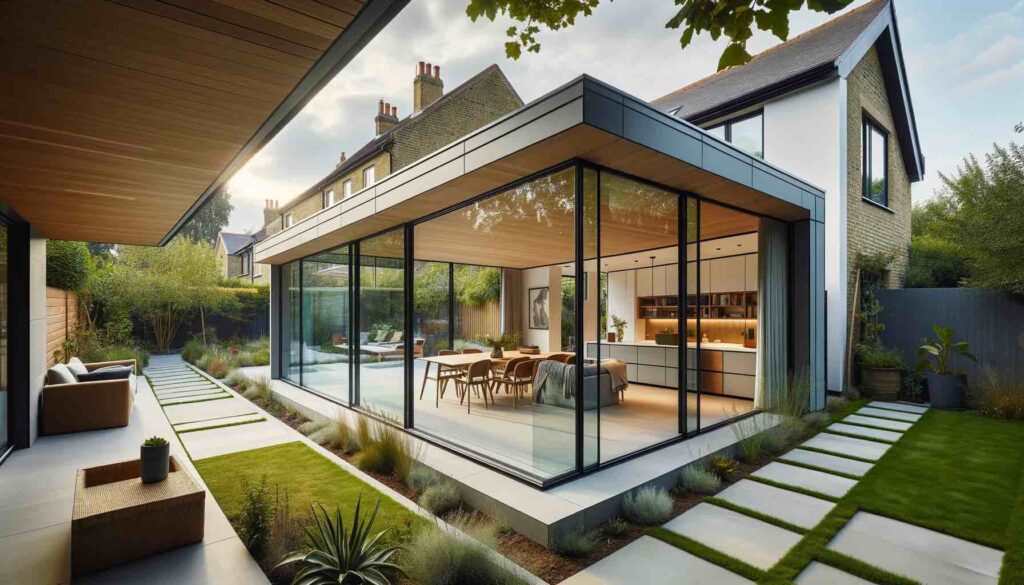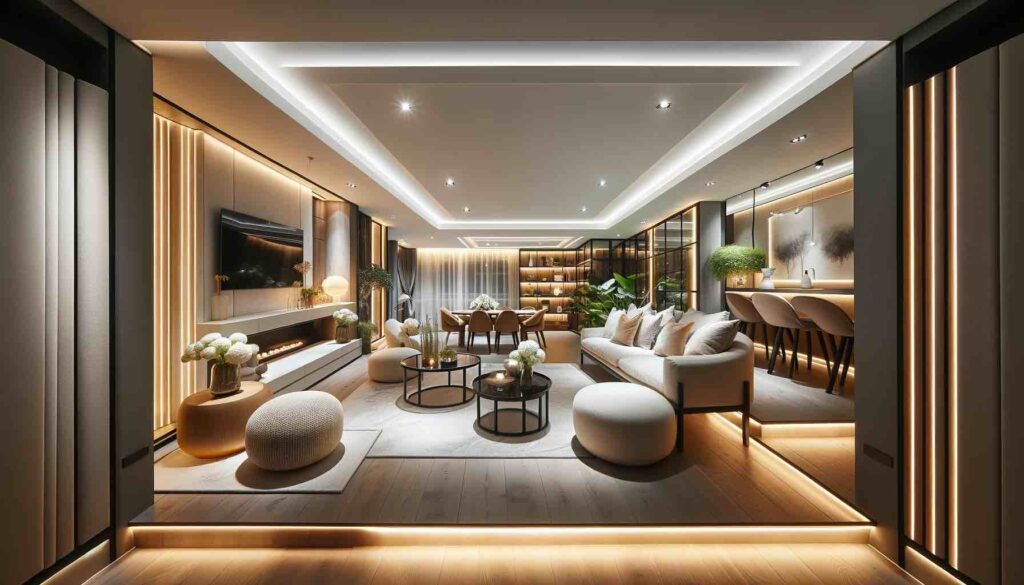Over thirteen yearsexperience in the industry
We can offer aMarket comparison
Accepted bymajority of high street banks
Recognised byUK Finance
Expanding your living space through home extensions is a popular way to adapt your home to changing needs in the dynamic housing market. Whether you’re looking for an extra bedroom, a larger kitchen, or just more living space, understanding the different types of home extensions and their specific requirements is crucial. This guide explores London’s most common types of home extensions, along with insights into insurance and warranty considerations for each.
1. Single-Story Extensions:
Ideal for ground or first-floor expansions, single-story extensions are a cost-effective way to add rooms like bedrooms, bathrooms, or additional living space. They are less complex and generally more budget-friendly.
Insurance and Warranty Considerations:
- Site Insurance: Essential during construction to protect against risks like theft, damage, or injury on site.
- Structural Defects Insurance: Important for new construction to cover any structural issues that may arise post-completion.
- Completed Housing Warranty/New Build Warranty: Applicable for new extensions as a guarantee against defects.
- Latent Defects Insurance: Provides coverage for hidden defects discovered after completion.
- Right-of-Lights Insurance: May be necessary if the extension could potentially block a neighbour’s natural light.
2. Two-Story Extensions:
A two-story extension adds considerable room for those needing substantial space by building an additional floor. Perfect for multiple new rooms or expanded living areas.
Insurance and Warranty Considerations:
- Site Insurance: Essential during construction to protect against risks like theft, damage, or injury on site.
- Structural Defects Insurance: Important for new construction to cover any structural issues that may arise post-completion.
- Completed Housing Warranty/New Build Warranty: Applicable for new extensions as a guarantee against defects.
- Latent Defects Insurance: Provides coverage for hidden defects discovered after completion.
- Right-of-Lights Insurance: May be necessary if the extension could potentially block a neighbour’s natural light.
3. Wraparound Extensions:
These extensions expand the side and rear of your home, offering a spacious, open-plan area. They are ideal for combining with kitchen extensions but have a higher price tag.
Insurance and Warranty Considerations:
- Site Insurance: Essential during construction to protect against risks like theft, damage, or injury on site.
- Structural Defects Insurance: Important for new construction to cover any structural issues that may arise post-completion.
- Completed Housing Warranty/New Build Warranty: Applicable for new extensions as a guarantee against defects.
- Latent Defects Insurance: Provides coverage for hidden defects discovered after completion.
- Right-of-Lights Insurance: May be necessary if the extension could potentially block a neighbour’s natural light.
4. Conservatory Extensions:
Conservatories add a glass-walled living area, usually at the back of the house. Due to energy efficiency concerns, they’re less expensive than traditional extensions but might not be suitable for year-round use.
Insurance and Warranty Considerations:
- Site Insurance: Needed during the building phase.
- Structural Defects Insurance: To cover potential structural issues with the new construction.
- Completed Housing Warranty: For post-completion peace of mind.
5. Basement Extensions:
Transforming your basement into a functional area adds valuable space but can be complex and costly, often requiring structural modifications. However, we take a look at the benefits that could be had by having a basement conversion.
Insurance and Warranty Considerations:
- Site Insurance: Crucial during the construction process.
- Structural Defects Insurance: To cover structural issues, especially important given the complexity of basement works.
- Latent Defects Insurance: Useful for any hidden defects that might arise later.
- Retrospective Building Warranty: If modifying an existing basement, this may be applicable.
6. Loft Conversions:
Loft conversions are perfect for utilizing unused attic space. They can be complex, possibly requiring structural reinforcement, but effectively add rooms like bedrooms or bathrooms.
Insurance and Warranty Considerations:
- Structural Defects Insurance: To cover any potential structural issues post-conversion.
- Retrospective Building Warranty: Useful for conversions of existing structures.
- Self-Build Warranty: If the loft conversion is a DIY project.
7. Garden Living Pods:
Garden living pods are modern, standalone structures that offer an innovative solution for adding functional living space. Ideal for home offices, studios, or guest rooms, these pods provide flexibility and can often be installed with minimal disruption.
Insurance and Warranty Considerations:
- It’s essential to check whether your home insurance extends to cover external structures like garden pods.
- Ensure that the pod has a warranty, particularly on weather resistance and structural durability.
From traditional extensions to innovative garden living pods, expanding your home offers various options to suit different needs and preferences. Remember to factor in the aesthetic and practical aspects, essential insurance adjustments, and warranty protections for your new space. Whether you choose a loft conversion, a basement extension, or a trendy garden pod, thorough planning and professional advice are key to a successful home expansion project.
FAQ
What is the most cost effective way to increase the value of your home when expanding living space?
Answer: Adding Another Bathroom: Affixing a half-bath onto the side of your house or transforming an existing half-bath into a full-size bathroom can be surprisingly affordable and can greatly increase the value of your home
What are the legal requirements for building a home extension in the uk?
In the UK, there are specific legal requirements for building a home extension. These include obtaining planning permission and complying with building regulations. Here are the key points to consider:
- Planning Permission: It is essential to understand the planning permission requirements for home extensions in the UK. This involves confirming compliance with local planning restrictions, considering the impact on neighboring properties and the environment, and obtaining prior approval for larger extensions
- Building Regulations: All home extensions in the UK must meet building regulations. This ensures that the extension meets safety standards, complies with legal requirements, and maintains the structural integrity of the property. Building regulations cover aspects such as structural integrity, safety, electrical, plumbing, and fire safety requirements
- Permitted Development: Some home extensions may fall under permitted development rights, allowing them to bypass the traditional planning process. However, there are specific criteria and limitations that must be met to qualify for permitted development
References
- Building Regulations 2010
- Planning Permissions (England & Wales)
- Permitted Development (Rights For Householders)
Copyright © 2025 Granite Building Warranties
Supported by Fox 360 Ltd
Granite Building Warranties Ltd is an Appointed Representative of Richdale Brokers & Financial Services Ltd which is authorised and regulated by the Financial Conduct Authority.
Granite Building Warranties is a company registered in England and Wales (Company Number 11497543) with its registered office at 1st Floor, 5 Century Court, Tolpits Lane, Watford, WD18 9PX


